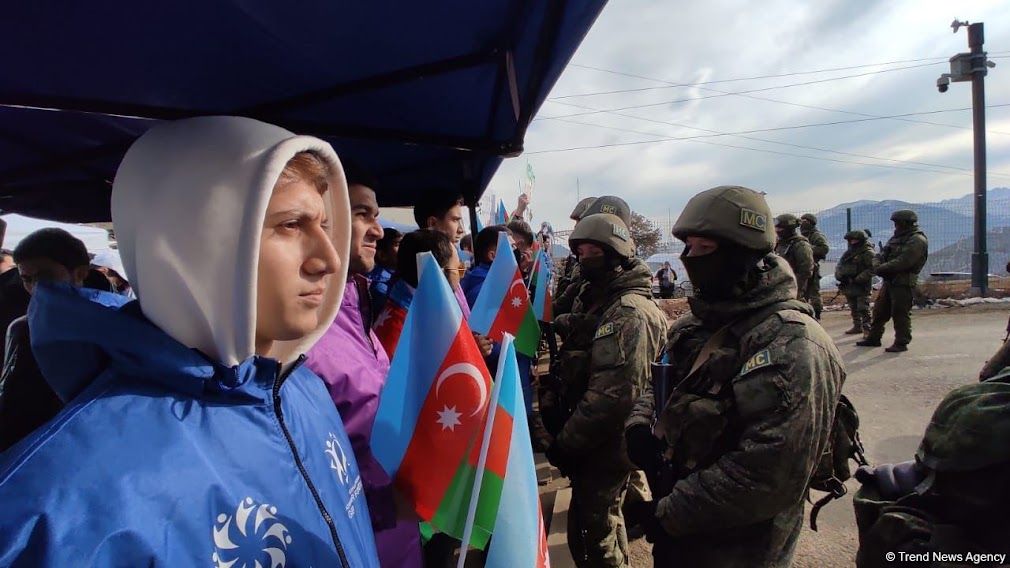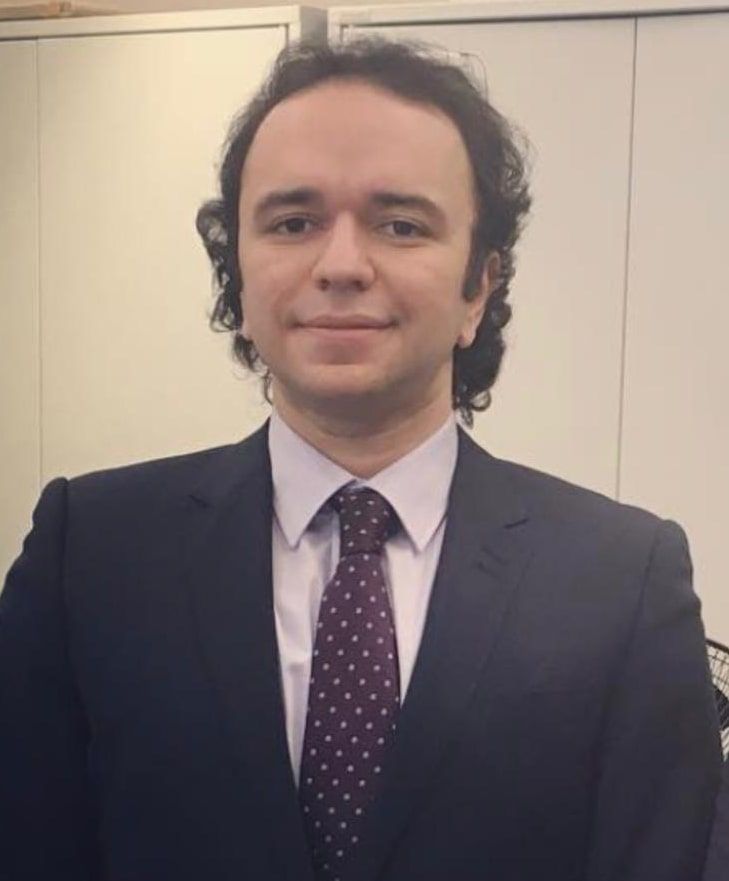Russian peacekeepers face tribulations and the worst is yet to come

By Orkhan Amashov
As Azerbaijan’s concerns over the mounting evidence pointing to the exploitation of Azerbaijan’s mineral deposits in Karabakh, conducted through the cooperation of the Russian peacekeepers and the remnants of the illegal and unrecognised "NKR" continue to grow, Baku seems to be preparing for a swift and decisive move, patiently but determinedly waiting for the right time to strike. The scenario is escalating, with the apogee in arm’s reach.
Prelude to the protest
The ongoing demonstration underway since 12 December in the Shusha district of the Karabakh Economic Region, conducted by Azerbaijani activists and non-governmental organisations (NGOs), had a precursor. The present anger has long been in gestation. Firstly, one needs to consider the plethora of contributing events that are mostly centred around the Russian peacekeepers’ incompetence and the growing discontent in Azerbaijani society over reports regarding the misuse of the Lachin Corridor; the joint business venture between Ruben Vardanyan, the so-called “first minister” of the illegal and unrecognised “NKR”, and Maj-Gen Volkov, the commander of the Russian contingent, voraciously exploiting the nation’s resources with impunity; the presence of those whom Baku suspects to be Iranian saboteurs in the area; and many other considerations of import.
Secondly, on a more specific level, it all started on 3 December when representatives and experts from the Azerbaijani Ministry of Economy, Ministry of Ecology and Natural Resources, the State Service for Property Issues under the Ministry of the Economy, and Azergold CJSC made an attempt to enter to the zone under the Russian peacekeeping contingent, accompanied by journalists, whereupon they were denied access and unceremoniously manhandled by the soldiers, giving rise to unbridled fury.
Officials from Baku held two meetings with the command of the Russian contingent on 3 and 7 December, respectively, and achieved an agreement to facilitate ecological monitoring of the Gyzylbulag gold and Demirli cooper-molybdenum deposits and other localities of interest, with the purpose of registering property, together with assessing potential damage and risks to the environment.
The monitoring failed due to what is widely viewed as deliberate blockage by Vardanyan’s armed henchmen, leading to the current stand-off on the Shusha-Khankandi road, which has now developed into a seemingly endless vigil.
The absence of the mandate
The Russian peacekeeping contingent, temporarily stationed in Khankandi, as far one can ascertain, is a frumpy mess, reminiscent of the old Soviet Red Army before an inglorious capitulation. Deeply unpopular both in Azerbaijan and Armenia, for contrasting reasons, and with a mandate that has been extremely vague from the outset, it has yet to fathom the gist of its main duties and may never succeed in doing so, for time is, in fact, running out.
The legitimacy of the presence of the Russian contingent in Karabakh derives from the 10 November trilateral declaration which does not incorporate a fully-fledged mandate in any detail. The only provision in the document that gives any idea of the peacekeepers’ raison d’être is Article 5, which states: “in order to increase the effectiveness of control over the implementation of the agreements by the Parties to the conflict, a peacekeeping centre shall be deployed to exercise control over the ceasefire”. Articles 3 and 4 establish the exhausting list of military units of the peacekeeping contingent and the rules pertaining to its duration, respectively.
The fact of the matter is, as far as any agreement reached between the sending (Russia) and receiving states (Azerbaijan), the only meaningful provision is that the contingent is “to exercise control over the ceasefire”. For all its vagueness, there are serious grounds to assert that Article 5 does not entitle it to anything akin to being a barrier between the zone of temporary control and the rest of Azerbaijan, and it has no clearly-defined duty to serve the interests of the ethnic Armenian population of Karabakh.
Attempts have been made both by Russia and Armenia to add some specificity to the contingent’s functions and duration, with Baku demonstrating disinclination towards agreeing to anything remotely leading to the permanence of Russian forces in the region.
Volkov’s meltdown continues
Part of the reason for the present fury is connected with the spectacular failure of the command of the peacekeepers to look reasonably agreeable in the eyes of Azerbaijan. Maj-Gen Volkov, as far as one can judge on the basis of his few perfunctory and dissolute public appearances, does not look like a man well-trained in holding back from grabbing a canapé or cognac shot when passed the tray. He is neither media-savvy nor remotely presentable. His befuddled mind is not even good at chucking together ill-digested thoughts in plausible conjunction. Weird gaps in his knowledge as to his official duties have been noted and he has solipsistic tendencies. Longueurs and clumsy repetitions have defined his interviews, with his furtive glances revealing his complicity.
Not even good at uttering broad-brash remarks, let alone glorious one-liners, Volkov is also under media scrutiny, due to his warm relations with Vardanyan, exacerbated by the hint of mercantile interests that have already besmirched his sullied name. The man is no communicator. His speeches, on the few occasions he managed to deliver them in public, disintegrated into desultory doggerel. The overall view is that a quiet life with a comfortable living fuelled by money of dubious origin is his self-serving objective. No quantum leap is expected of him. No one expects him to change, for too established are the perceived fundamentals of his character. Having said this, it should also be added that there is no remote guarantee or expectation overruling the malice of any unscrupulous newcomer who becomes his future successor.
On 12 December, Russian President Vladimir Putin spoke to his Azerbaijani counterpart and, although the official information imparted to the media suggests some general lines on the further implementation of the practical aspects of the agreements between the Russian, Azerbaijani and Armenian leaders agreed hitherto, with a specific emphasis on economic and logistical ties, it could be confidently assumed that what is currently underway in Shusha, near the peacekeeping contingent, was also discussed.
Neil Watson, a British journalist, commented: “Both Russia and fraternal Armenia remain stuck between a rock and hard place. Armenia is nothing without Russia, and the latter needs to be embroiled in another war like it needs a hole in the head. Let us hope common sense will prevail, but myopia and self-delusion of Putin remain unbounded.”
There is a view shared in analytical circles that, after the Russian invasion of Ukraine in February, Azerbaijan embarked on the path of checking the limits of the Kremlin, gradually entrenching its de facto sovereignty over the remainder of Karabakh under temporary Russian control. What is undoubtedly true is that Baku is being bold and exercising strategic patience before making a move, for which the critical mass is being formed. A formal note sent by the Azerbaijani Foreign Ministry to Russia, regarding the activity of the contingent, is just one aspect of a complex process. Like an iceberg, where more treachery is underlying and not readily visible, one truism remains: something is about to happen.
---
Follow us on Twitter @AzerNewsAz
Here we are to serve you with news right now. It does not cost much, but worth your attention.
Choose to support open, independent, quality journalism and subscribe on a monthly basis.
By subscribing to our online newspaper, you can have full digital access to all news, analysis, and much more.
You can also follow AzerNEWS on Twitter @AzerNewsAz or Facebook @AzerNewsNewspaper
Thank you!

